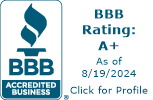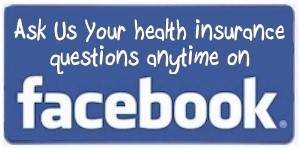June 13th, 2009 – Steven Burd, CEO of Safeway, Inc. may have come up with the “secret sauce” for a triple play for health care reform in America. That is to provide health insurance for all Americans, keep it private and affordable, and improve the overall health of Americans.
Safeway has 1,755 stores across America and is one of the largest employers in Colorado. Because of its size, Safeway introduced a self insured health insurance plan in 2005. In the 4 years since the program started Safeway kept its costs flat, while most American companies saw their prices go up 38%. How did they perform this remarkable feat? The answer is short: Personal responsibility and financial incentives.
Safeway discovered that fully 70% of all health care costs are a direct result of behavior. And 74% of all costs can be attributed to four chronic health conditions:
- Cardiovascular Disease
- Cancer
- Diabetes
- Obesity
Safeway then borrowed from the automobile insurance model pricing model that rewards safe drivers and charges more for drivers with tickets for not following the rules of the road. Burd said that his company leverages HIPPA, which allows employers to charge different premiums based on behaviors. Safeway’s program is voluntary and currently covers 74% of their workforce.
Safeway, like most employers has cost sharing with employees. Safeway’s cost sharing with employees is based upon tobacco usage, healthy weight, blood pressure and chlorestrol levels. Employees receive discounts for each of the 4 areas that they pass. If they pass all four they can save over $1500 year for a typical family policy. The company also will give retroactive discounts if they improve their health by passing a test they failed the preceding year.
Does it work? Yes, the savings in reduced claims which allowed the company to keep their rates level for 4 consecutive years is evidence in itself. Safeway’s tobacco and obesity rates are 70% of the national average. Doctors have told many employees that these changes have added years to their lives, not to mention improving the quality of those years. Employees have requested more of these incentives, but Safeway is limited by federal regulations from increasing these standards.
Although Colorado’s insurers have introduced health incentive plans, they were hamstrung by Colorado House Bill 1355, which prevents insurers from giving discounts to healthy small groups based upon positive behavior. While this law was well intentioned, it helps groups with high claim rates, but at the expense of healthy groups. Thus it really rewards the unhealthy and discourages healthier groups.
Clearly, the key to Safeway’s success is a combination of personal responsibility and financial incentives for positive behavior. Moreover, by putting these principals into practice on a wider scale, we could provide health insurance coverage for all Americans while reducing current health care costs.
We don’t need to raise taxes or socialize the health care industry to do this, but we do need to free up the private insurers to provide these types of plans to individuals and small groups. The plans need to be guarantee issue regardless of pre-existing conditions (as is the case with Safeway) and allow the insurers to pass on significant discounts to incent positive behavior.
Steven Burd projects that if the nation as a whole were to follow Safeway’s model, the country’s health bill would be $550 billion less than it is today. That is nearly 4 times the $150 billion needed to help cover the nation’s uninsured.
The definition of wisdom is the ability to learn from other persons’ experiences. I pray that our nation’s politicians will employe wisdom and common sense to make the minor, but powerful changes required to allow private industry to make our nation and every American stronger, healthier and more competitive.





